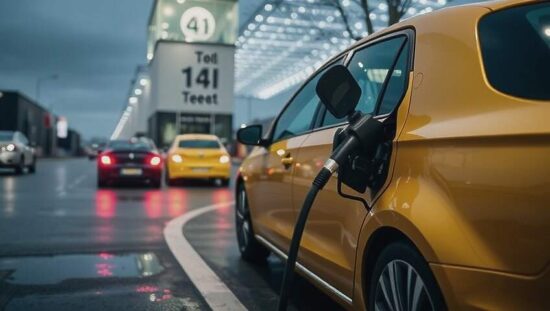As the European Commission has recently shown flexibility on CO2 emission limits for the automotive industry, the German automobile manufacturers are now urging the German government and the EU to reconsider the planned ban on new cars with CO2 emissions by 2035. The German Association of the Automobile Industry (VDA) has submitted a yet-unpublished paper, reported by the newsletter Politico Pro Industrie & Handel, calling for a relaxation of the reduction target.
According to the VDA’s chief, Hildegard Müller, additional emissions could be offset by “more ambitious targets for renewable fuels.” New regulations could allow “a limited number of new internal combustion engines to be approved even after 2035.” Müller emphasized that for the German location and the associated jobs, the “end of the combustion engine is not realizable” citing a lack of charging stations, modern power grids and purchasing incentives. Consequently, the demand for electric vehicles “remains significantly behind what is needed to achieve the climate goals.”
The so-called fleet emission limits and the resulting “combustion engine ban” are part of the EU’s “Fit for 55” package, which aims to steer the European Union away from a path of more than four degrees of global warming and towards a path that would limit the rise in global temperatures to a little over two degrees Celsius. Under the limits, all new cars of a manufacturer approved in the EU must, on average, emit a maximum of 93.6 grams of CO2 per kilometer. The target will be gradually reduced, with a goal of zero grams per kilometer by 2035.





